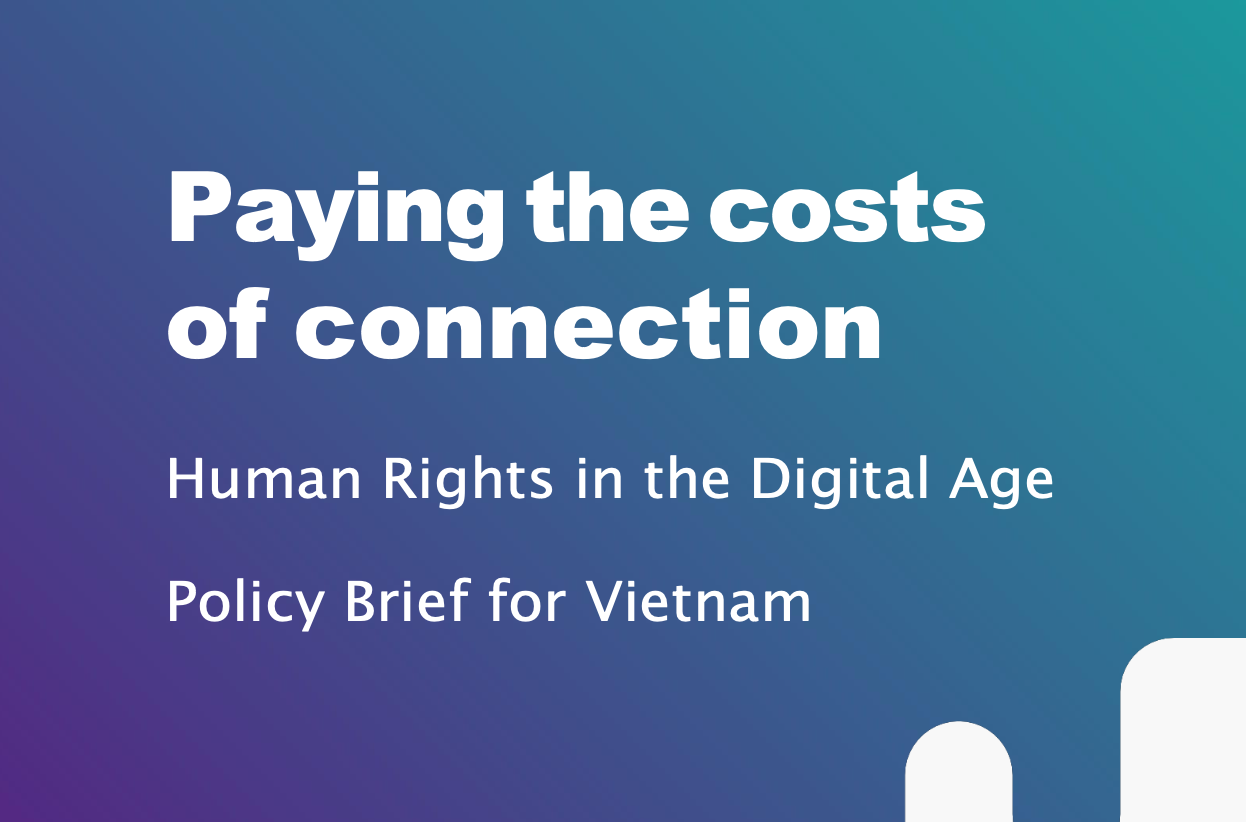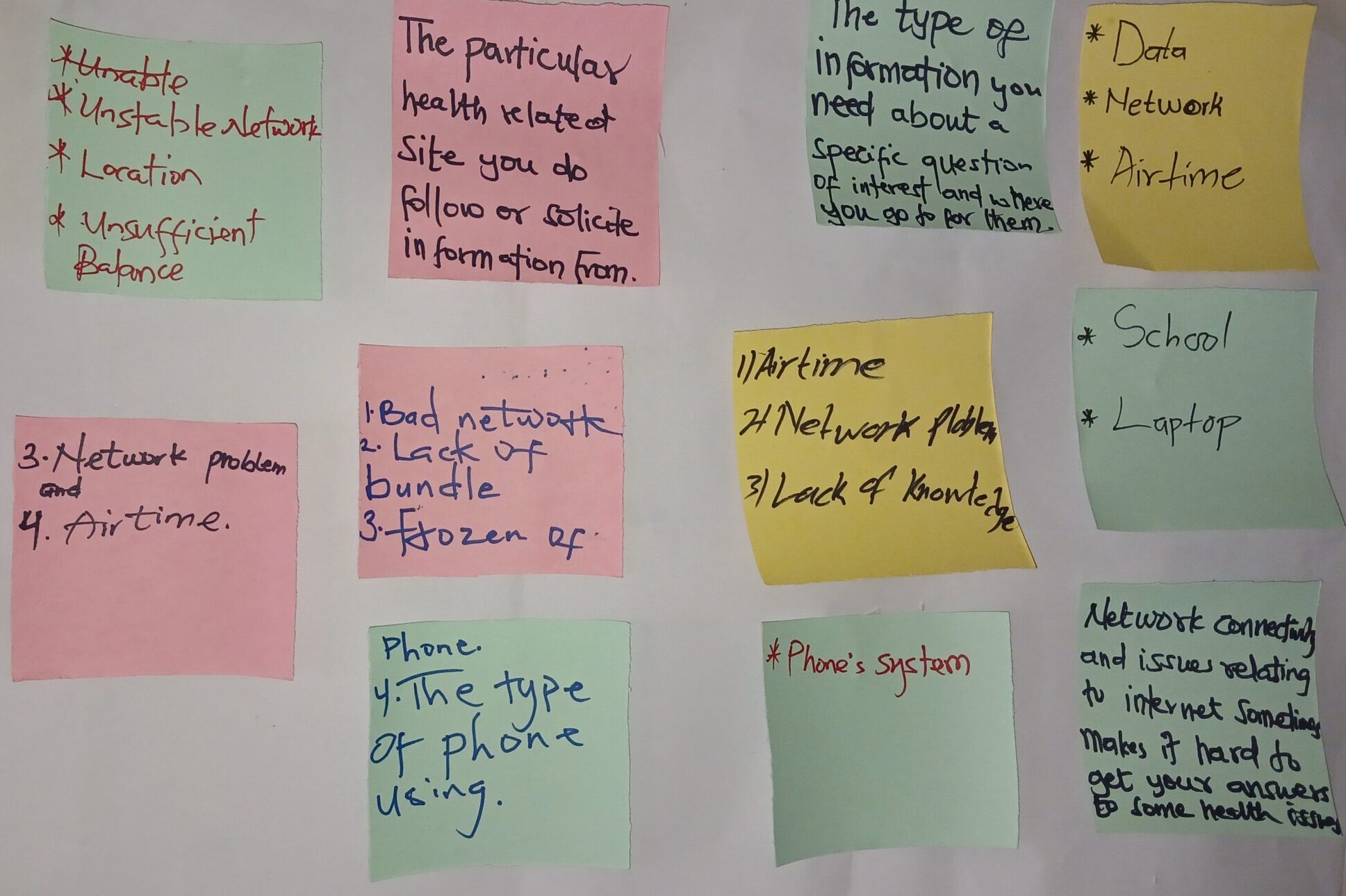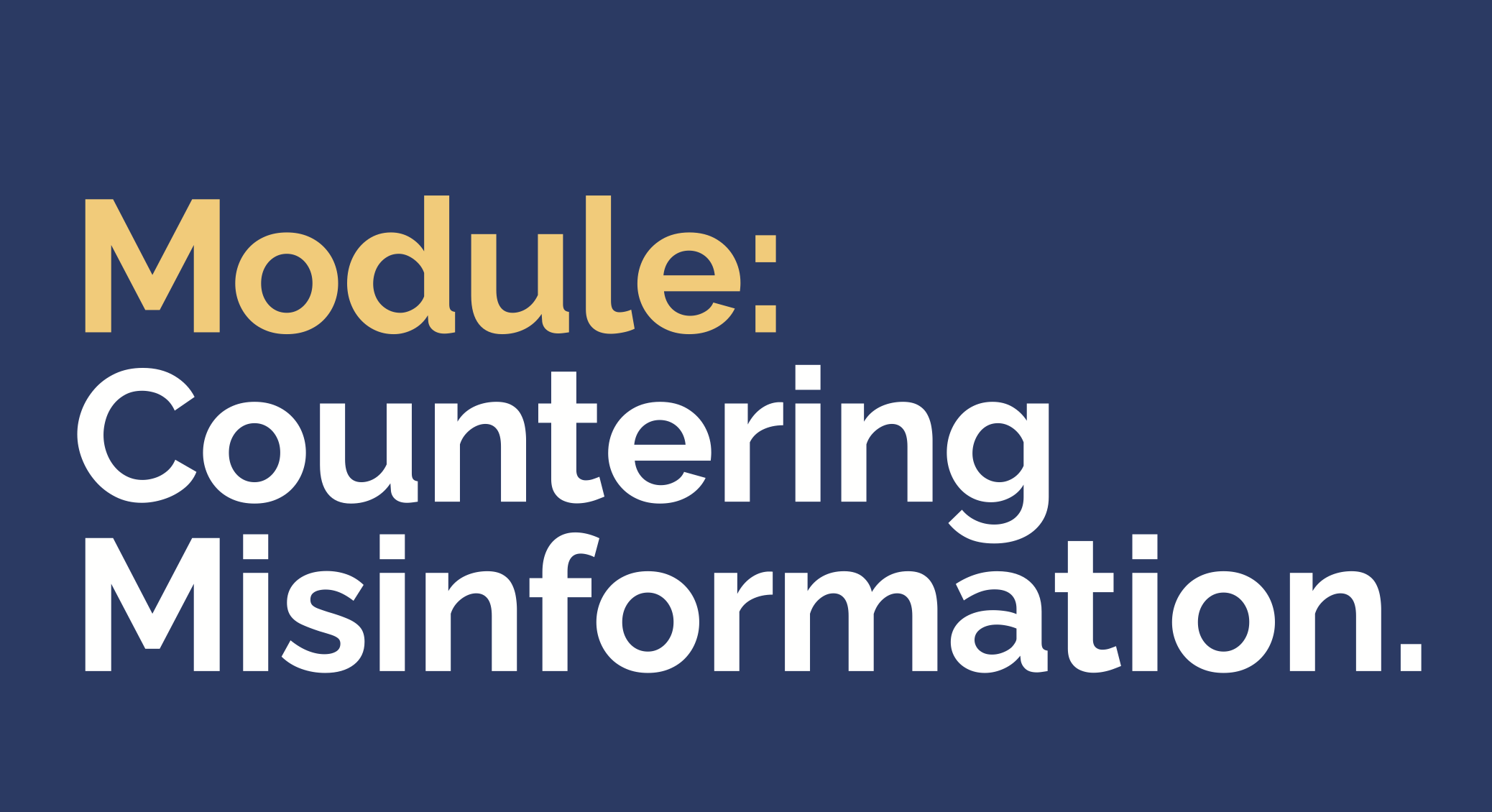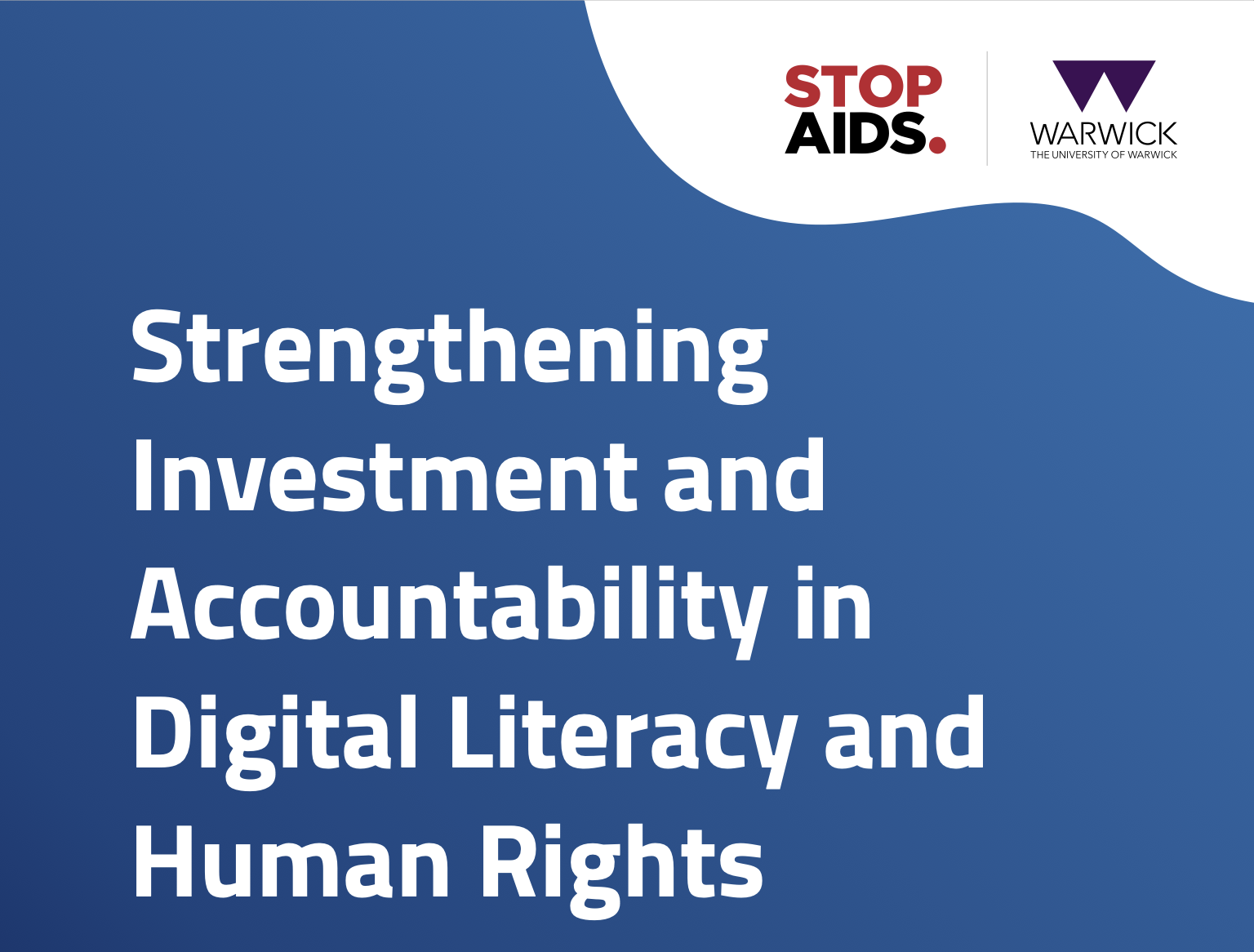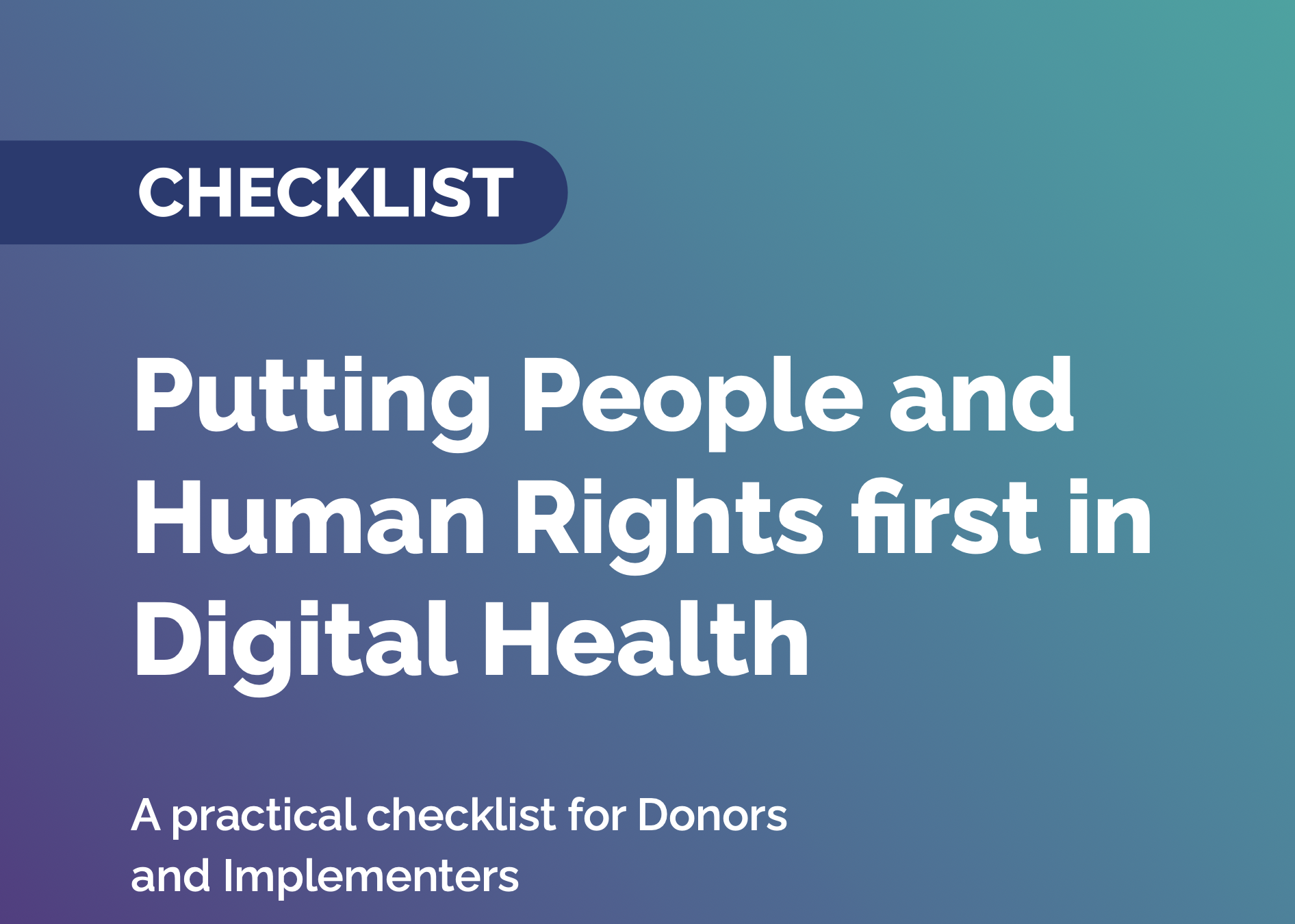
Featured
Putting People and Human Rights First in Digital Health: Checklist
Putting People and Human Rights First in Digital Health is a practical tool to uphold and advance human rights within health programmes using digital technologies and artificial intelligence (AI). Designed to help implementers, communities, funders, and civil society in protecting and promoting human rights within digital health interventions, the resource is freely available on the STOPAIDS website.

